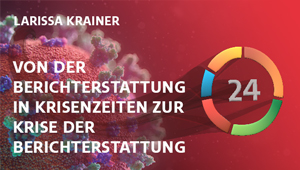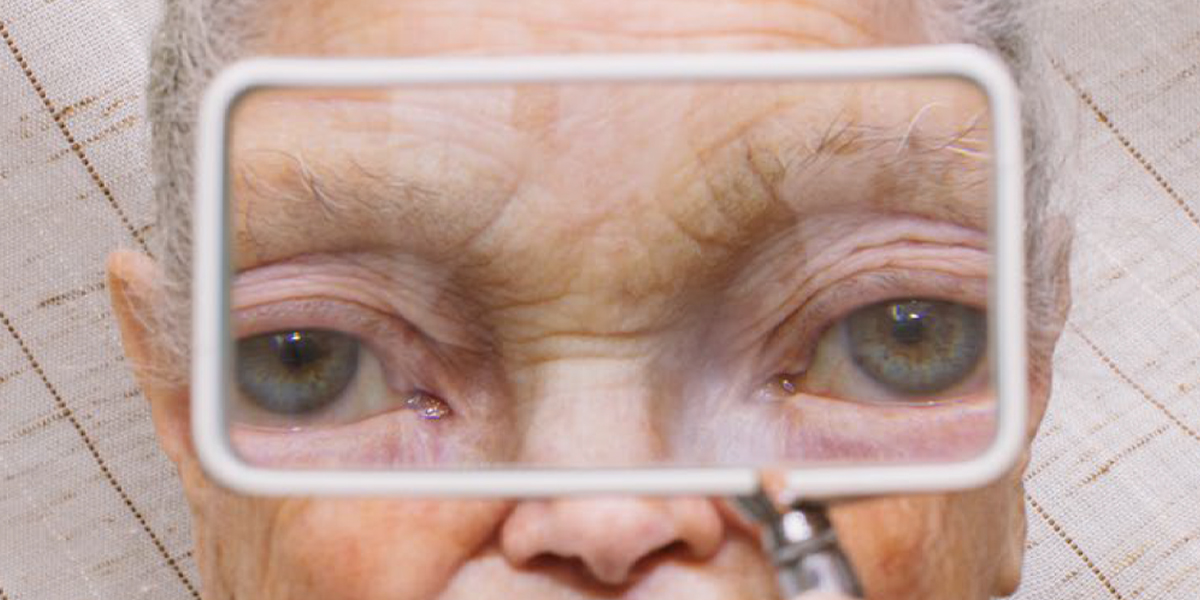Back to overview
02 | FEBRUARY - Trust
Facts before opinion - Peter Daser, ORF editor's spokesman
ORF is required by law to provide the general public with comprehensive information on important political, social, economic, cultural and sports issues. Whereby the offer has to be oriented to the "diversity of interests of all listeners and viewers and to consider them in a balanced way".
This is what ORF's editorial teams strive to do every day - to accomplish something that is being lost in the media world: to inform society about a basic set of facts. This understanding about and on commonly accepted facts can no longer be taken for granted.
Today, so-called "social media" are fueling a splintering of society into ideological groups that confuse their own opinions with facts - or even declare them to be "alternative facts." The tone quickly becomes aggressive, whether on the subject of Corona, gender equality, or migration. Positions with extreme views get the most attention here, the business model of the Internet corporations makes sure of that.
This is not the case in public broadcasting. Here, see above, taking into account the diversity of IDENTITIES in the audience is part of the mission and constitutes an effective means against fragmentation and polarization of society. The basis for this is reliable and credible information broadcasts, based on editorial independence. The essential thing here is balance. Of course, not every news report contains all points of view on a current issue, but the positions of a pluralistic society have their place in the broadcasts as a whole. In political reporting, for example, all parliamentary parties regularly have their say, and in economic issues, employees and consumers have their say, as do companies.
This is more difficult in science reporting: here, it is important to avoid the danger of false balance - for example, if minority positions were elevated to the same level as established scientific consensus. This is discussed at length in the editorial offices, and is also part of the quality of public service. It's a truism that absolute objectivity and balance don't exist, yet we make a special effort to approximate them in our reporting. The facts we provide are intended to enable the audience to meet an essential prerequisite for participating in democratic discourse: forming a well-founded opinion, an informed point of view - based on recognized facts.
___________________________
TRUST
ORF Act
§ 4. (6) Independence is not only a right of journalistic or program-creating employees, but also their duty.
§ Section 32 (1) The Austrian Broadcasting Corporation and its subsidiaries shall respect the independence and personal responsibility of all programming staff and the freedom of journalistic practice of all journalistic staff in the performance of all duties assigned to them under this federal law.
Termine im Februar
| Di |
1. |
Chinesisches Neujahr |
| Mi |
2. |
Beginn: Olympische Winterspiele |
| Do |
3. |
135. Geburtstag von Georg Trakl |
| Fr |
4. |
Radio Salzburg: Mozartwettbewerb |
| Sa |
5. |
Beginn: Semesterferien (W, N) |
| So |
6. |
dokFilm: Klammer gegen Russi |
| Mo |
7. |
"konkret" |
| Di |
8. |
Safer Internet Day |
| Do |
10. |
Hizir-Fastentag |
| Fr |
11. |
Schließe-neue-Freundschaften-Tag |
| Sa |
12. |
Beginn: Semesterferien (B, K, S, T, V) |
| So |
13. |
Bundespräsidentenwahl Deutschland |
| Mo |
14. |
Valentinstag |
| Di |
15. |
ORF1: "ABC Bär" |
| Do |
17. |
"ECO" |
| Fr |
18. |
"Mayrs Magazin - Wissen für alle" |
| Sa |
19. |
Beginn: Semsterferien (O, St) |
| So |
20. |
Tag der sozialen Gerechtigkeit |
| Do |
24. |
"Aktuell nach fünf" |
| Fr |
25. |
Sag's multi - Redewettbewerb |
| So |
27. |
Gemeinderatswahl Tirol |
| Mo |
28. |
Ohne-Facebook-Tag |
Aus dem Public Value Archiv:


© ORF
Von der Berichterstattung in Krisenzeiten zur Krise der Berichterstattung?
Univ.-Prof.in Dr.in Larissa Krainer, Universität Klagenfurt
Texte 15
u.a. mit Beiträgen von Verena Metze-Mangold, Jürgen Grimm und Olaf Steenfadt
Texte II - International
u.a. mit Beiträgen von Olaf Jandura, Uwe Hasebrink und Gregory Ferrell Lowe
Über den Wert von Vertrauen für Medien
Dr.in Kati Förster, Institut für Publizistik und Kommunikationswissenschaft, Universität Wien
Die Quadratur des Kreises? ORF-Wahlforschung als öffentlich-rechtliche Aufgabe und wissenschaftliche Herausforderung
Univ.-Prof. Peter Filzmaier
Öffentlich-rechtlicher Rundfunk als gesellschaftlicher Mehrwert und Verfassungsauftrag
Univ.- Prof. Dr. Karl Ucakar, Universität Wien, Institut für Staatswissenschaft
Die öffentlich-rechtlichen Medien als vertrauenswürdige Informationsquelle
Dr. Andreas Olbrich-Baumann, Universität Wien, Institut für Psychologie
Die öffentlich-rechtlichen Medien als Quelle vertrauenswürdiger Informationen
Überlegungen vor dem Hintergrund osteuropäischer Erfahrungen seit 1989
Trau ! Schau ! Wem ? In Zeiten des globalen Jahrmarkts ist Vertrauen die wichtigste Währung
Mag. Markus L. Blömeke, FH Joanneum



